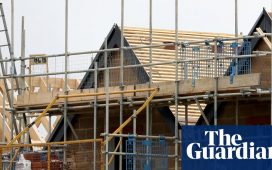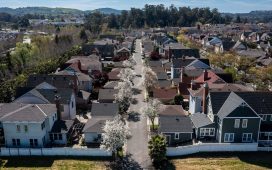Unlock the Editor’s Digest for free
Roula Khalaf, Editor of the FT, selects her favourite stories in this weekly newsletter.
Chinese developer Kaisa said it had reached a restructuring agreement with a key creditor group on Tuesday, as it seeks to stave off legal challenges that could see it liquidated in Hong Kong.
The company said in a stock exchange filing that it would issue $5bn of bonds as part of the proposed restructuring. Investors would also receive $4.8bn of convertible bonds.
Kaisa’s plan comes after it defaulted in 2021, part of a wider reversal of fortune for many developers that profited from China’s property boom before the sector collapsed three years ago.
The company was the biggest borrower of offshore debt behind Evergrande, the developer at the heart of a property cash crunch that led to a spate of other defaults and continues to weigh on the world’s second-largest economy.
Brock Silvers, chief investment officer of Hong Kong private equity group Kaiyuan Capital, said while the plan was only a proposed agreement with a subset of creditors, it “still points toward real progress” and made a September liquidation order “unlikely”.
Silvers added: “This would be a positive step for China’s troubled dollar bond market.”
More than 20 Chinese property developers have faced or are facing winding up petitions in Hong Kong courts, where many of them listed and issued bonds. Offshore Chinese property debt made up a large portion of Asia’s high-yield bond market but new issuance has dried up since the slowdown began.
Kaisa’s case, the next hearing for which takes place on September 9, has been repeatedly adjourned over recent months and a judge in June warned over delays.
Evergrande’s Hong Kong entity was ordered to liquidate earlier this year by a court in the territory after failing to produce a concrete restructuring plan despite repeated adjournments. But almost all of its assets are in the mainland, which operates under a different legal regime.
A China-based restructuring specialist said a successful offshore restructuring agreement for developers could help prevent an eventual liquidation scenario in Hong Kong, as it would not be “realistic” for offshore creditors to recover a significant amount from the process.
Kaisa became the first Chinese developer to default offshore in 2015, but recovered after restructuring before defaulting again years later. The litigant in its case this time is Citi bank, the trustee bank on its defaulted offshore bonds.
Sunac, another Chinese developer, successfully restructured its offshore debts late last year. Others, such as Country Garden, have yet to reach any agreement.
China’s property slowdown has raised questions over the sector’s role in future growth as previously booming urbanisation slows. Fitch Ratings, the rating agency, said on Tuesday it expected housing demand in China to fall 20 per cent to 800mn square metres per year from 2024-40, compared with demand in the decade to 2020.










